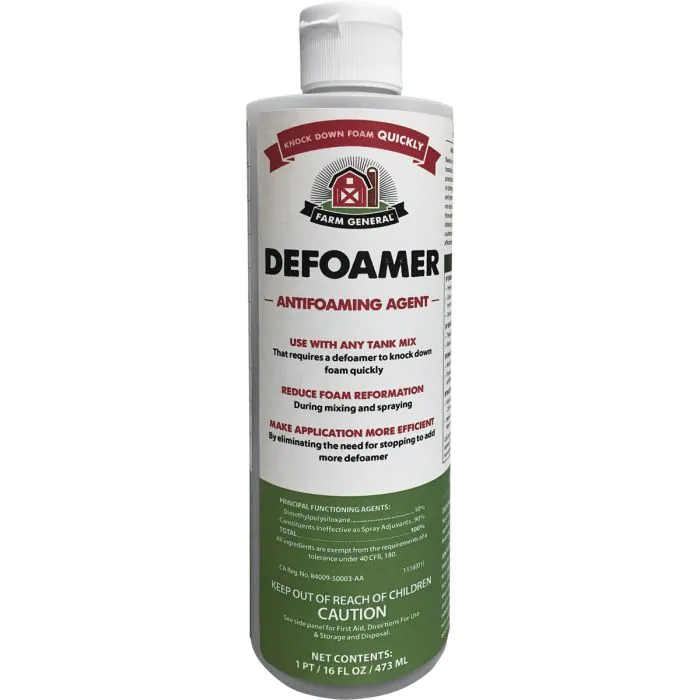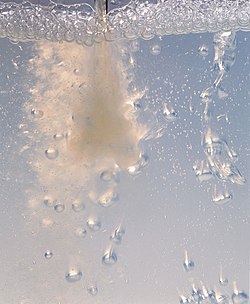All You Need to Know About Chemical Defoamer and Its Uses
All You Need to Know About Chemical Defoamer and Its Uses
Blog Article
Discover the Top Reasons You Need a Chemical Defoamer for Effective Foam Control
Chemical defoamers serve as crucial agents that reduce foam formation, thus enhancing processes in industries such as food manufacturing, drugs, and wastewater therapy. As we discover the diverse benefits of chemical defoamers, it becomes noticeable that their function extends past simple foam reduction, impacting total performance in means that may not be quickly obvious.
Boosted Functional Effectiveness
Just how can the effective use chemical defoamers substantially improve operational effectiveness in various commercial processes? The existence of foam can impede production by blocking devices, minimizing ability, and complicating procedure control. Chemical defoamers act as a crucial option in minimizing these challenges. By minimizing surface stress, they promote the rapid collapse of foam, enabling for smoother operation and lessening downtime (Chemical Defoamer).
In sectors such as food and drink, drugs, and wastewater therapy, the application of defoamers enhances procedure stability and product high quality. For instance, in fermentation procedures, regulating foam generation is essential for making best use of return and performance. Furthermore, the use of defoamers can bring about more reliable mixing and aeration, resulting in boosted response times and overall efficiency.
In addition, when foam is efficiently regulated, it minimizes the danger of overflow and contamination, making certain compliance with safety and security and high quality requirements. Inevitably, the integration of chemical defoamers right into industrial procedures promotes a much more effective workflow, optimizing output while maintaining premium requirements.
Expense Cost Savings and Source Administration

Furthermore, the usage of defoamers enhances the efficiency of resources usage. In lots of applications, too much foam can cause overuse of chemicals, causing unneeded expenditures. By controlling foam degrees, organizations can optimize their chemical input, consequently decreasing functional prices. This not just adds to economic cost savings yet additionally advertises sustainable practices by decreasing waste.
In addition, lowered foam in handling systems can enhance the overall throughput, allowing facilities to raise manufacturing capacity without sustaining added prices - Chemical Defoamer. This reliable source administration equates into significant economic benefits, making it possible for organizations to allot funds towards development or expansion. In summary, the integration of chemical defoamers into commercial processes fosters an extra resource-efficient and economical setting, eventually supporting business development and sustainability
Improved Item High Quality

Using chemical defoamers plays a critical function in improving item top quality throughout various markets. Excessive foam can result in irregular product solutions, affecting the last characteristics of items such as paints, finishes, food items, and pharmaceuticals. By minimizing foam formation, chemical defoamers assist in smoother manufacturing procedures, making sure that formulations stay uniform and fulfill specified top quality criteria.
In the food and beverage market, for example, the existence of foam can influence the clearness and taste of products, eventually influencing consumer satisfaction. Chemical defoamers aid keep the wanted structure and look, thereby improving the total high quality of the last item. Likewise, in the production of paints and coverings, foam can lead to flaws such as pinholes and poor adhesion, see page undermining the product's performance.
Moreover, using defoamers can improve the effectiveness of procedures like fermentation and emulsification, which are essential for achieving desired product attributes. By streamlining manufacturing and ensuring consistent quality, chemical defoamers not just improve the end product yet additionally contribute to a positive brand name credibility. Therefore, buying efficient foam control remedies is essential for any business intending to supply high-grade items consistently.
Equipment Protection and Longevity
Reducing foam production is necessary for securing devices and ensuring its longevity in different commercial applications. Too much foam can result in a variety of functional concerns, consisting of tools damage, enhanced upkeep prices, and unintended downtime. When foam accumulates, it can trigger overflow, leading to spills that compromise the integrity of equipment and bordering locations.
Additionally, foam can block sensing units and pumps, which can prevent efficiency and effectiveness. In serious cases, it can cause the malfunction of parts, requiring costly repairs or substitutes. By making use of a chemical defoamer, firms can effectively minimize foam development, thus protecting their devices from the harmful results of foam-related problems.
In addition helpful hints to protecting against damage, efficient foam control can dramatically enhance the operational life-span of machinery. Investing in a high quality chemical defoamer is a proactive technique for securing equipment and fostering durability in commercial settings.
Flexibility Throughout Industries
Chemical defoamers play an essential function in various markets, properly addressing foam-related challenges across varied applications. Their adaptability is obvious in sectors such as food and beverage, drugs, and wastewater therapy, where foam can restrain procedures and reduce effectiveness. In the food industry, defoamers make certain smooth manufacturing by preventing foam formation during mixing, fermentation, and bottling, thereby maintaining product top quality and consistency.

Moreover, in wastewater treatment centers, chemical defoamers are employed to regulate foam throughout the aeration process, advertising optimal microbial task and improving the general therapy effectiveness. Their capacity to work properly in high-temperature and high-shear settings further highlights their versatility.
Verdict
In verdict, the application of chemical defoamers is important for efficient foam control across various industries. The versatility of defoamers allows for widespread application in food production, pharmaceuticals, and wastewater therapy, inevitably adding to sustainable growth and the maintenance of high operational standards (Chemical Defoamer).
Chemical defoamers serve as vital representatives that mitigate foam formation, thus enhancing processes in markets such as food production, drugs, and wastewater treatment. As we explore the multifaceted benefits of chemical defoamers, it ends up being apparent that their function prolongs beyond mere foam reduction, impacting overall efficiency in methods that might not be promptly apparent.
By alleviating foam development, chemical defoamers help with smoother production processes, making sure that formulations remain uniform and satisfy specific top quality requirements.
By making use of a chemical defoamer, companies can successfully minimize foam formation, thus securing their devices from the destructive impacts of foam-related problems.
In verdict, the use of chemical defoamers is critical you can find out more for effective foam control across different industries.
Report this page